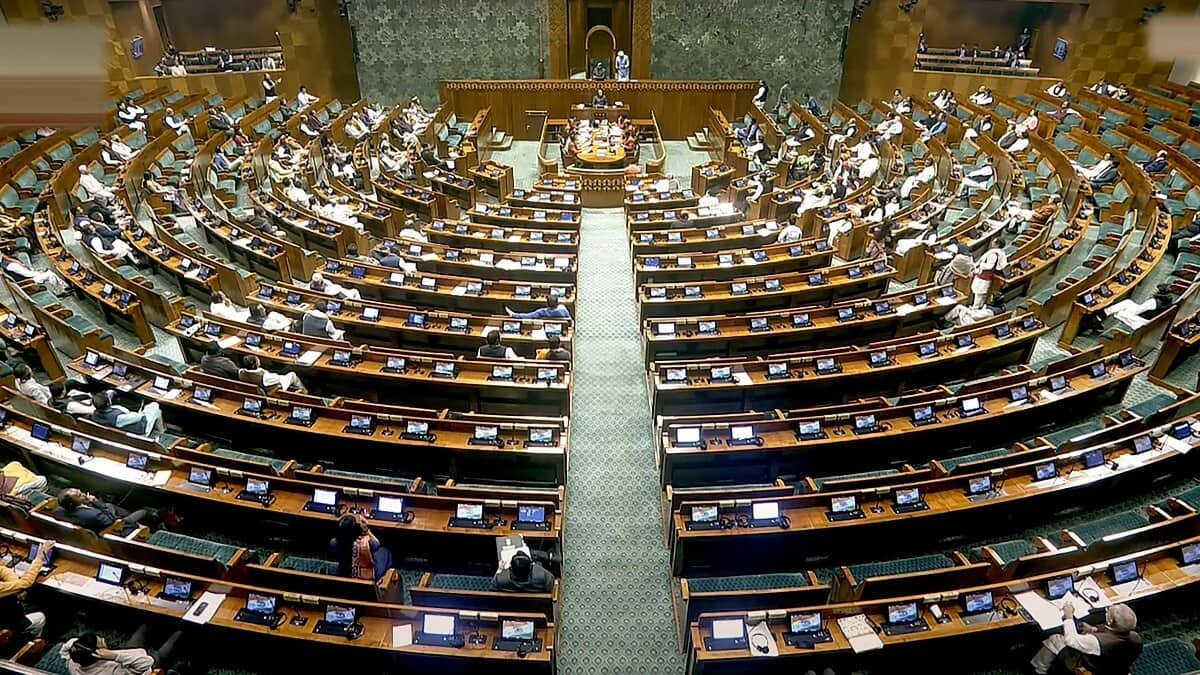269 MPs vote in favor of 'One Nation, One Election'
What's the story
The "One Nation, One Election" bills were introduced in the Lok Sabha by the Union government on Tuesday. The bills seek to hold simultaneous elections for the Lok Sabha and state assemblies.
The Constitution (129th Amendment) Bill, 2024 and the Union Territories Laws (Amendment) Bill, 2024 were tabled by Union Law Minister Arjun Ram Meghwal.
269 MPs voted in favor of introducing the bills while 198 opposed them.
Opposition backlash
Opposition parties criticize 'One Nation, One Election' bills
The introduction of the bills was criticized by opposition parties, including the Congress, Samajwadi Party (SP), and Trinamool Congress (TMC).
Congress MP Manish Tewari argued that these bills "assault the Constitution's basic structure doctrine."
SP MP Dharmendra Yadav called it an attempt by the Bharatiya Janata Party to introduce a "dictatorship."
Meanwhile, TMC MP Kalyan Banerjee claimed these proposals undermine the Constitution's fundamental framework.
Proposed amendments
Bills propose amendments for simultaneous elections
The bills seek to add Article 82(A) for simultaneous elections and amend Articles 83, 172, and 327.
They propose that if a legislature is dissolved prematurely, elections will only be held for its remaining term.
The proposed amendments will come into effect after the next Lok Sabha elections in 2029, with full implementation expected by 2034.
Party directives
BJP issues whip to MPs, seeks support for bills
The BJP has also issued a three-line whip to its MPs, underlining the significance of these bills.
National Democratic Alliance (NDA) allies such as the Telugu Desam Party and Shiv Sena (Shinde faction) have also asked their MPs to attend the session.
The government may require support from non-aligned parties such as YSR Congress Party, Biju Janata Dal, and All India Anna Dravida Munnetra Kazhagam to pass this amendment.
Leaders' opposition
'One Nation, One Election' bills face criticism from CMs
The proposal has been criticized by leaders such as West Bengal Chief Minister Mamata Banerjee and Tamil Nadu Chief Minister MK Stalin. They called it "anti-democratic" and an attempt to centralize power.
Former President Ram Nath Kovind pointed out that while 32 political parties supported it, 15 opposed it.
The bill provides for a uniform five-year term for all legislatures from an appointed date notified by the President.
